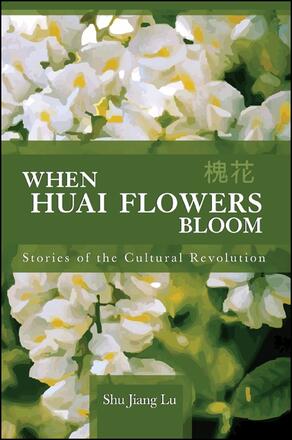
When Huai Flowers Bloom
Stories of the Cultural Revolution
Alternative formats available from:
Depicts the Cultural Revolution through stories in a variety of voices.
Description
Set against China's turbulent years between the early 1960s and the late 1970s, When Huai Flowers Bloom is the literary memoir of a young girl who manages to sustain love, imagination, and strength during this most chaotic time. With twelve separate yet interconnected stories, Shu Jiang Lu alternates between storyteller and listener as she relays haunting memories and explores the devastating effect of Mao's anticultural Cultural Revolution. Lu weaves together the voices of multiple real and fantastic characters: her parents and their treasured yet forbidden bookcase; the mysterious vendors beckoning from Pear Flower Alley; the immortal martial hero; the reactionary opera singer and the black demon novelist; the whispering ghost and dancing fairy; and the author herself, discovering her storyteller's voice in the military camps of her youth. When Huai Flowers Bloom is a poignant, persistent journey toward voice and freedom.
Shu Jiang Lu is Associate Professor of English at the University of Pittsburgh at Greensburg.
Reviews
"It is hard not to have sympathy for the characters in Lu's life … A reader … cannot help but think of our luck in being born 12,000 miles from … the murderous destruction … that harassed a whole generation of Chinese intellectuals …Few of us would have survived; that Lu did so … is part of the magic that flowers in the book. " — RALPH (Review of Arts, Literature, Philosophy, & Humanities)
"Lu has written eloquent vignettes of people she knew who experienced China's recent tragic madness … [and] helps us remember the immense cost paid by millions of individuals to satisfy the whims of a few at the top. " — St. Louis Post-Dispatch
"…a collection of 12 beautifully lyrical tales that combine memoir with fiction and reveal the suffering and redemption of one of history's most fascinating times. " — The San Diego Union-Tribune
"A soulful and beautiful addition to all the Cultural Revolution literature that has come before it and afterwards. I couldn't put it down. " — Da Chen, author of Brothers: A Novel
"Lu's voice is quiet, gentle, questioning, yet wise, even when she is recounting very dire events. " — Elizabeth Hodges, author of What the River Means